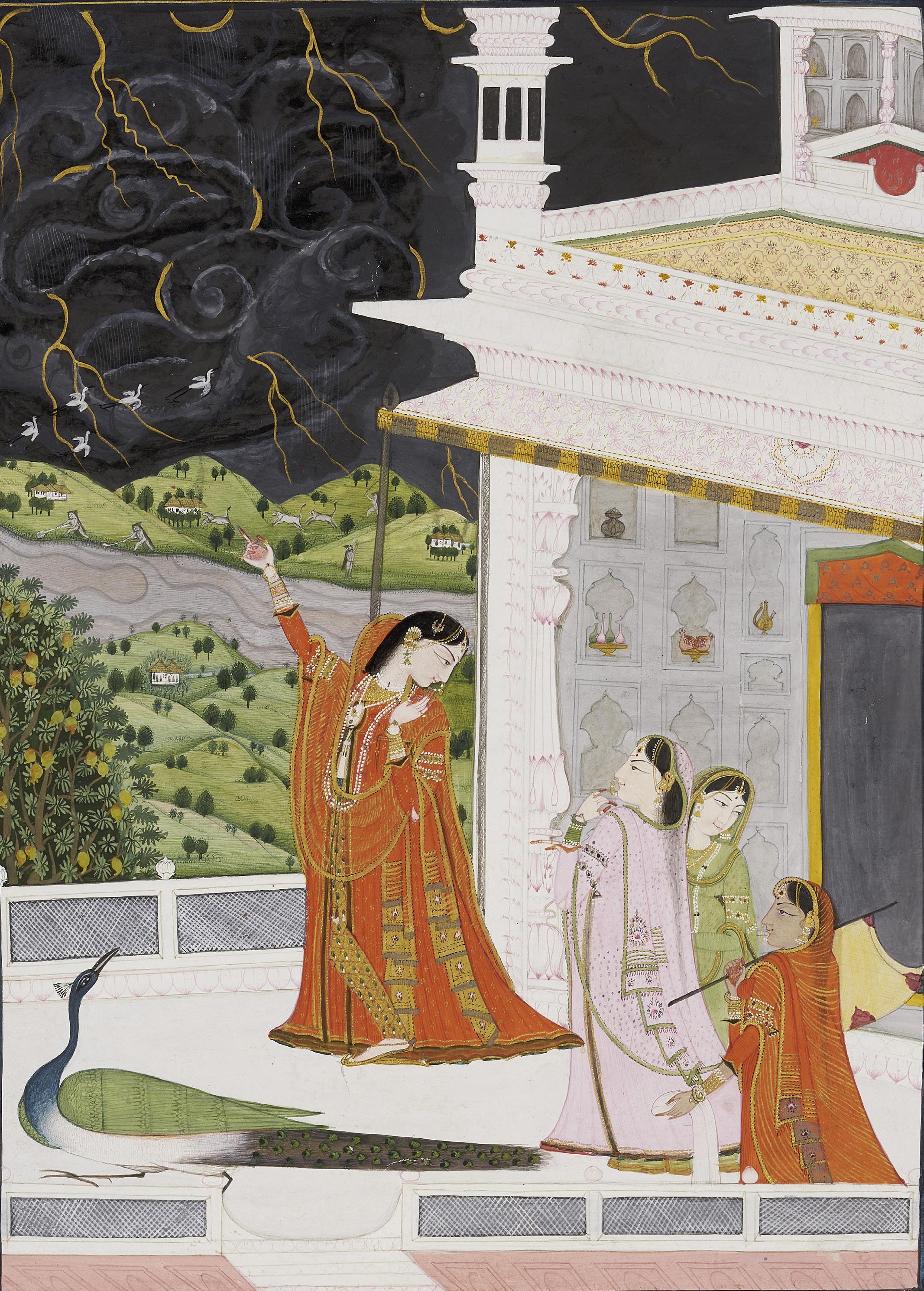
2 minute read
Radha Watching a Storm
Signed ‘Mohammadi’, Mandi, dated 1824 (Samvat 1854)
Opaque watercolor heightened with gold on paper
Image: 9 1/3 x 6 5/8 in. (24 x 17 cm.)
Folio: 11 7/8 x 9 7/8 in. (30.3 x 25 cm.)
Provenance:
Theo Brown and Paul Woner, San Francisco, 1970s-1982.
Private collection, Los Angeles.
Bonhams New York, 19 Mar 2018, lot 3106.
Verso inscribed: S[amvat] 30 re Bha [draprada] pra [vishte] 10 Shri Miyan Sahaba ki nazar kita ch[tere]. Mahamadiye; translated, “Presented to Miyan Saheb (exalted member of the royal family) on the 10th day of the Bhadrapada month of the year 30 (corresponding to 1854) by the painter Mohammadi”.
The painter evokes the atmosphere of the monsoon season with a turbulent sky of billowing rain clouds and lightning bolts. The passionate nayika clad in a richly ornamented dress looks back to her courtesans, gesturing in the hope that the arrival of the rain will hasten the return of her lover. The powerful and brooding presence of the peacock signifies both the arrival of the rainy season and amplifies the absence of the nayak.
Mohammadi (Mohammad Bax) was the disciple of Sajnu, whose prominence as a master artist became fully realized under his new patron Raja Ishvari Sen of Mandi after he left the court of Kangra around 1804. The style favored in Mandi in the early decades of the nineteenth century diverted towards curious subjects and a naïve style under Shamsher Sen. Sajnu and Mohammadi followed the conventions developed in the Guler and Kangra school and focused on the classic Bharamasa and nayika love poetry, such as that illustrated in the present painting.
This work is important as it shows the high quality of painting produced in the nineteenth century, indicated by a date on the verso which corresponds to 1824 CE. This remains one of the very few folios bearing the artist’s signature. However, the name of the patron in the inscription remains absent and is only referred to by the honorific title “Miyan Saheb.” It is possible that this inscription refers to Raja Bijai Sen, who ruled Mandi from 1851 to 1902.
Compare the present painting with a similar scene in the San Diego Museum of Art published in Goswamy & Smith, Domains of Wonder, San Diego, 2005, pp. 2523, fig.108. Also see a closely related work of similar size dated to circa-1840, entitled, Palace Women Watching the Approaching Storm, sold at Christie’s New York, 18 September 2013, lot 363.








